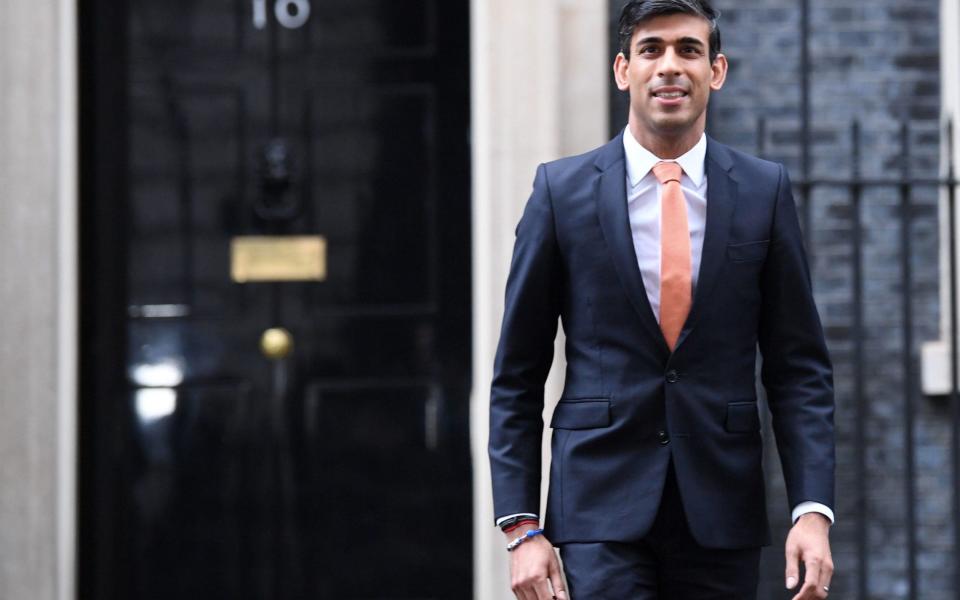Budget 2020: when is it and what can we expect?

The first Budget of Boris Johnson's majority government is just one week away, as newly-appointed chancellor Rishi Sunak confirmed plans to deliver the financial statement on March 11.
The giant Conservative majority has given Prime Minister Boris Johnson and his chancellor carte blanche for radical reform of taxes and public spending.
Although the party's manifesto was somewhat light on detail, the first Budget of the new Government is likely to be eye-catching.
Changes to tax, pensions, housing and social care are all likely to feature, as well as increased spending in the north of England as the Tories look to reward the voters that helped the party take power in December’s election.
But when will the Budget take place? And what is likely to be in it? Here is Telegraph Money's round-up of everything we know so far.
When will Rishi Sunak deliver the next Budget?
The Government has confirmed its first Budget will take place on March 11.
What can we expect to be in it?
The main personal finance pledge in the Tory's election manifesto was a tax cut for more than 30 million workers in the form of an increase in the threshold for paying National Insurance. This will save all workers earning more than £12,600 around £100 a year. This is likely to be confirmed in the Budget.
In the Queen's speech, the Government promised to get a grip on the social care crisis with an extra £1bn of funding for councils to “ensure that the social care system provides everyone with the dignity and security they deserve and that no one who needs care has to sell their home to pay for it”.
There could be hidden tax rises to pay for social care, however, as councils will be able to increase council tax by 2pc to raise extra cash.
High-speed broadband will continue its low-speed roll-out while providers could be given the power to access blocks of flats in cases where landlords are blocking access.
The Budget could also include better workers' rights to protect those on zero-hour contracts and maternity leave. The Government has also suggested ways to help the environment, including additional charges on single-use plastics.
The new Chancellor has re-written part of his Budget to fight the coronavirus crisis following worldwide action, as top economists warned that it could halve global growth. The Treasury is developing measures to support the public health response, businesses and the economy to prevent meltdown if an epidemic hits the UK.
Mr Sunak is also expected to end the freeze on fuel duty, as part of wider plans to get Britain on track for its carbon emission goals.
What other changes have been mooted?
Since the election, the political landscape has moved on somewhat. The Conservatives have promised that the Budget's main focus will be following through on the pledge to reduce the economic inequality between the South East and the areas the Tories won from Labour, predominantly in the Midlands and the North.
Boris Johnson has ruled out the option of introducing a wealth tax - or "mansion tax" - which would be levied each year on expensive properties mainly located in the south. This has come as a reversal of Mr Javid's proposal to introduce a wealth tax on the owners of expensive homes at the Budget.
This policy was first suggested by Ed Miliband during his time as Labour leader. If Mr Sunak were to implement a money-raising mansion tax, it is understood some of the proceeds would be used to reduce stamp duty for everyday buyers.

Another proposal made by Mr Javid would have seen pension tax relief restricted for people earning more than £50,000 a year. Cutting the relief from 40pc to 20pc for these earners would raise an estimated £10bn for the Exchequer. Mr Sunak has taken this off the table since his arrival.
The Tories have promised to reform entrepreneur's relief and it has emerged that the new Chancellor is forming plans to scrap or cut back on the tax relief.
Housing is also a key area for the Government. The Queen's speech said that a new policy would offer a 30pc discount for key workers and first-time buyers who are purchasing properties in their local area.
The First Homes scheme is expected to cut the cost of the new-build home by as much as £94,000. The savings would be "locked in", meaning future buyers would also benefit from lower prices. Further details on this policy could emerge in Mr Sunak's statement.

 Yahoo Finance
Yahoo Finance 